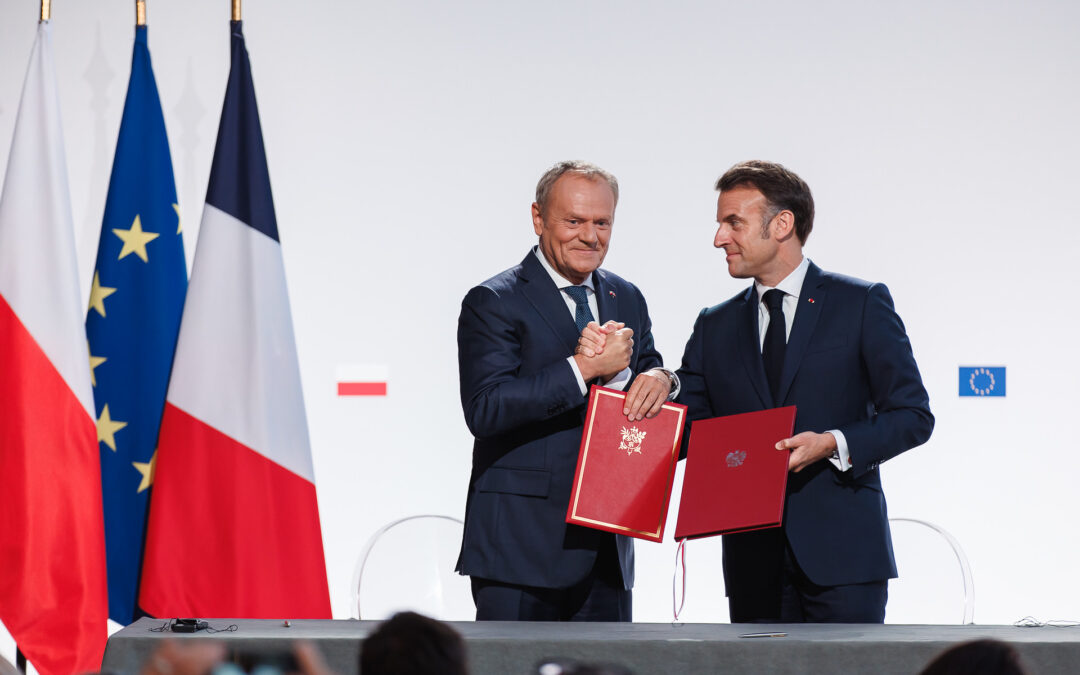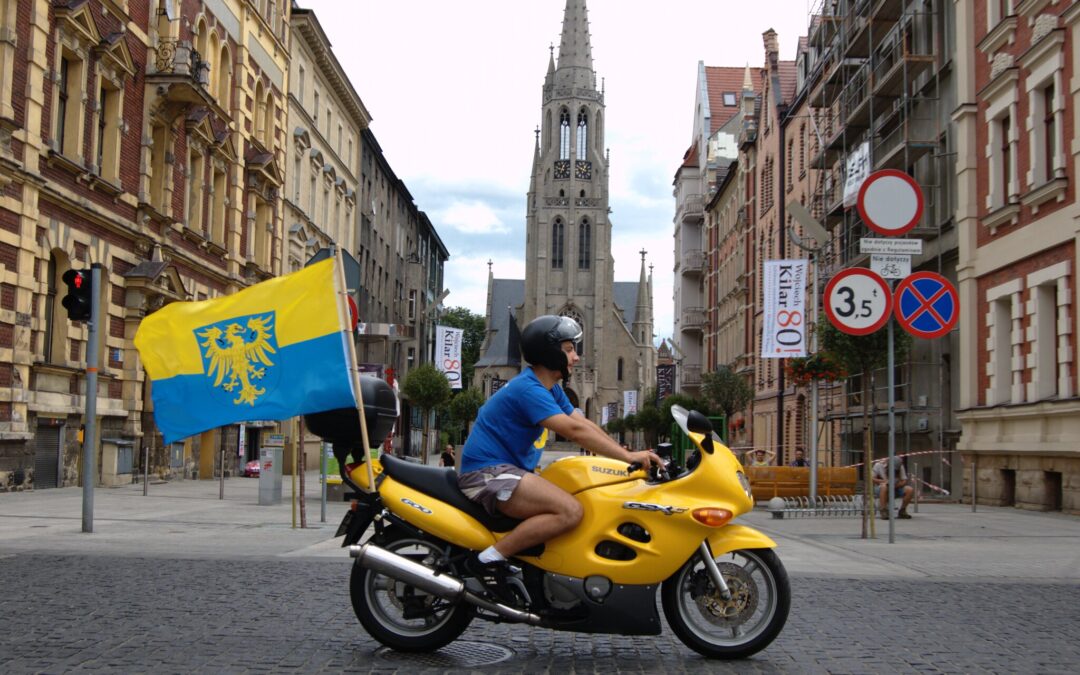Keep our news free from ads and paywalls by making a donation to support our work!

Notes from Poland is run by a small editorial team and is published by an independent, non-profit foundation that is funded through donations from our readers. We cannot do what we do without your support.
Poland and France have signed a new treaty upgrading relations between the two allies, including providing mutual security guarantees in the case of war.
Polish Prime Minister Donald Tusk, who signed the document alongside French President Emmanuel Macron, described the treaty as “groundbreaking”, noting that only Germany has a similar security pact with France and that it makes Poland an “equal partner” with its western allies.
Macron, meanwhile, declared that the treaty “opens a new era” not only for Poland and France, but also for Europe. “From Brest to Krakow, Europe stands together,” said the French president.
Witamy w Nancy, drogi przyjacielu @DonaldTusk.
To miasto pamięci, które symbolizuje głębokie więzi łączące Polskę i Francję, staje się dziś scenerią nowego rozdziału naszej przyjaźni – silniejszego partnerstwa w służbie bardziej suwerennej Europy. pic.twitter.com/p9VN4inIow
— Emmanuel Macron (@EmmanuelMacron) May 9, 2025
Friday afternoon’s ceremony took place in the eastern French city of Nancy – a highly symbolic choice as the region was ruled in the 18th century by deposed Polish King Stanisław I, who became duke of Lorraine. The town hall in which the signing took place sits on Stanisław Square (Place Stanislas).
Speaking afterwards, Tusk thanked Macron for “deciding that this meeting would take place in the most Polish city in France”.
He also noted that they had deliberately chosen to sign the document on 9 May, which marks Europe Day – the anniversary of the Schuman Declaration that paved the way for the EU – and one day after the anniversary of the end of World War Two in Europe.
Full details of the treaty are not yet available, but earlier on Friday, before departing for France, Tusk revealed that its most important element is “a clause of mutual support in the event of an attack on one of our countries”.
“It is with great satisfaction that I can say that – unlike in the past, when we expected security guarantees from stronger countries – today we talk to the French as partners, as an equal and strong partner,” he added. “Poland is now in a much better position than at any other time in history.”
There have been suggestions in recent months that France could extend its “nuclear umbrella” to protect allies, including Poland. Tusk noted on Friday morning that the new treaty would “open up the possibility of cooperation” in that area but that further talks would need to take place.
Meanwhile, the treaty would also “deepen cooperation in the field of agriculture, the joint presence of Poland and France in space…[and] defence technologies”, added the Polish prime minister. Both he and Macron also mentioned cooperation in developing civilian nuclear technologies.
Polish-French relations have gone “from darkness to light” since @donaldtusk's coalition replaced the former PiS government, says France's ambassador.
The pair will soon sign a treaty "raising relations to the same level we have with our main partners" https://t.co/4GdGdYGFtN
— Notes from Poland 🇵🇱 (@notesfrompoland) March 28, 2025
News of the planned treaty was announced earlier this year, with France’s ambassador to Poland, Étienne de Poncins, saying that it would put Poland on the same “premium” level of relations with Paris as Germany, Spain and Italy.
The ambassador paid tribute to the strengthening of Franco-Polish relations under Tusk’s government, saying they had gone from “darkness to light” since the departure in December 2023 of the national-conservative Law and Justice (PiS) administration. PiS regularly clashed with European partners, including France.
On Wednesday this week, Tusk also hosted Friedrich Merz in Warsaw on the new German chancellor’s first full day in office. The Polish premier declared that “the future of Europe really depends to a large extent on how this Weimar Triangle [of Poland, France and Germany] will work”.
Tusk also noted today that Poland is currently negotiating with the UK to strengthen security cooperation. “America will no longer be the only protective umbrella. Europe must take responsibility for itself,” Tusk told the Rzeczpospolita daily, though emphasising that relations with Washington remain vital.
Friedrich Merz visited Poland on his first full day as German chancellor for talks with @donaldtusk.
The pair discussed bolstering security, preventing illegal migration, war reparations, and creating high-speed rail connections between the two countries https://t.co/azkA47Ic2p
— Notes from Poland 🇵🇱 (@notesfrompoland) May 8, 2025

Notes from Poland is run by a small editorial team and published by an independent, non-profit foundation that is funded through donations from our readers. We cannot do what we do without your support.
Main image credit: Kancelaria Premiera/Flickr (under CC BY-NC-ND 2.0)

Daniel Tilles is editor-in-chief of Notes from Poland. He has written on Polish affairs for a wide range of publications, including Foreign Policy, POLITICO Europe, EUobserver and Dziennik Gazeta Prawna.



















